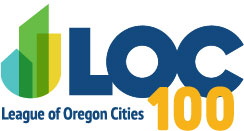
About the American Rescue Plan
Signed into law by President Biden on March 11, 2021, the American Rescue Plan (ARP) allocates $1.9 trillion to COVID-19 relief and economic recovery. Cities in Oregon will directly receive more than $680 million. These funds will be provided over two distributions, the first taking place shortly following the official passage of the ARP.
- Fact Sheet & FAQ
- Key Provisions
- Title-By-Title Summary
- ARP Overview by Senate Budget Committee
- Full Text of the Bill
- NLC Searchable Summary of Provisions
Summary
In addition to direct funding, the ARP provides specific funding for:
- Agriculture and nutrition programs, including extending SNAP and the Pandemic EBT program to keep families fed through the pandemic;
- Schools and institutions of higher education to safely reopen schools, address learning loss, and support students and staff, including support for broadband for students;
- Child care to help sustain child care providers and expand child care assistance to 857,000 children;
- COVID-19 vaccinations, testing, treatment, and prevention, especially for hard to reach communities and areas;
- Mental health and substance-use disorder services;
- Emergency rental assistance, homeowner assistance, and other housing programs to help families pay rent, mortgages, and utilities;
- Transit agencies to prevent layoffs of transit workers and prevent severe cuts to transit services that essential workers and the general public rely on.
- Multiemployer pension plans;
- Small business assistance, including specific programs for restaurants and live venues;
- Support for health care workers, transportation workers, federal employees, veterans, and other targeted populations;
- International and humanitarian responses and;
- Tribal government services.
The bill also includes provisions that:
- Extend enhanced unemployment benefits through September, providing an additional $300 per week on top of all state unemployment benefits;
- Provide direct economic impact payments of $1,400 per eligible individual and $2,800 for couples making up to $150,000 per year. Eligible families will also receive an additional $1,400 payment per child and adult dependent, amounting to $5,600 for an average family of four;
- Expand the Child Tax Credit and the Earned Income Tax Credit;
- Provide premium assistance for certain health insurance coverage; and
- Require coverage, without cost-sharing, of COVID-19 vaccines and treatment under Medicaid and the Children's Health Insurance Program (CHIP).

